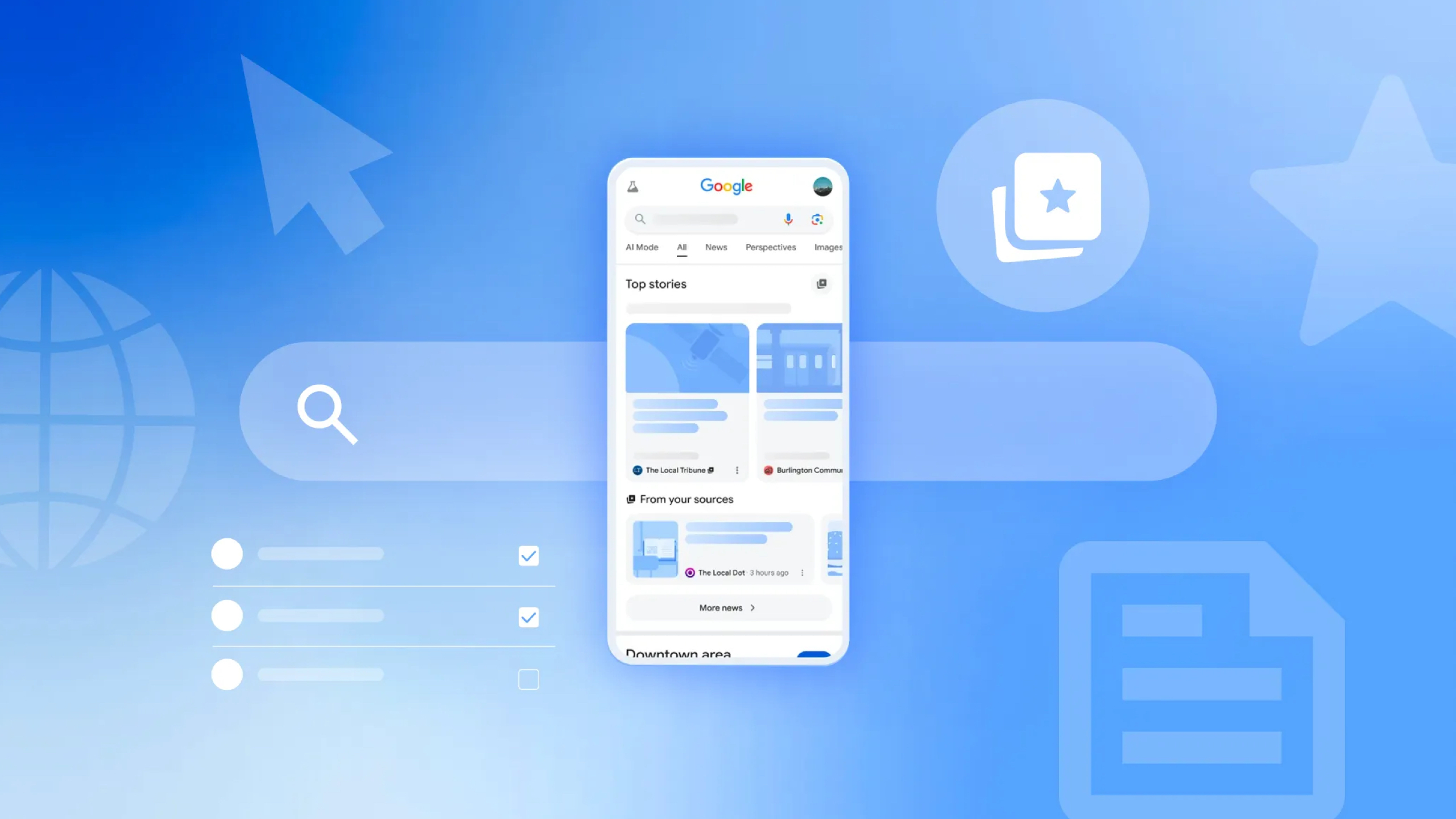Windows 11 vs. Chrome OS: Similarities, differences, and which one to use
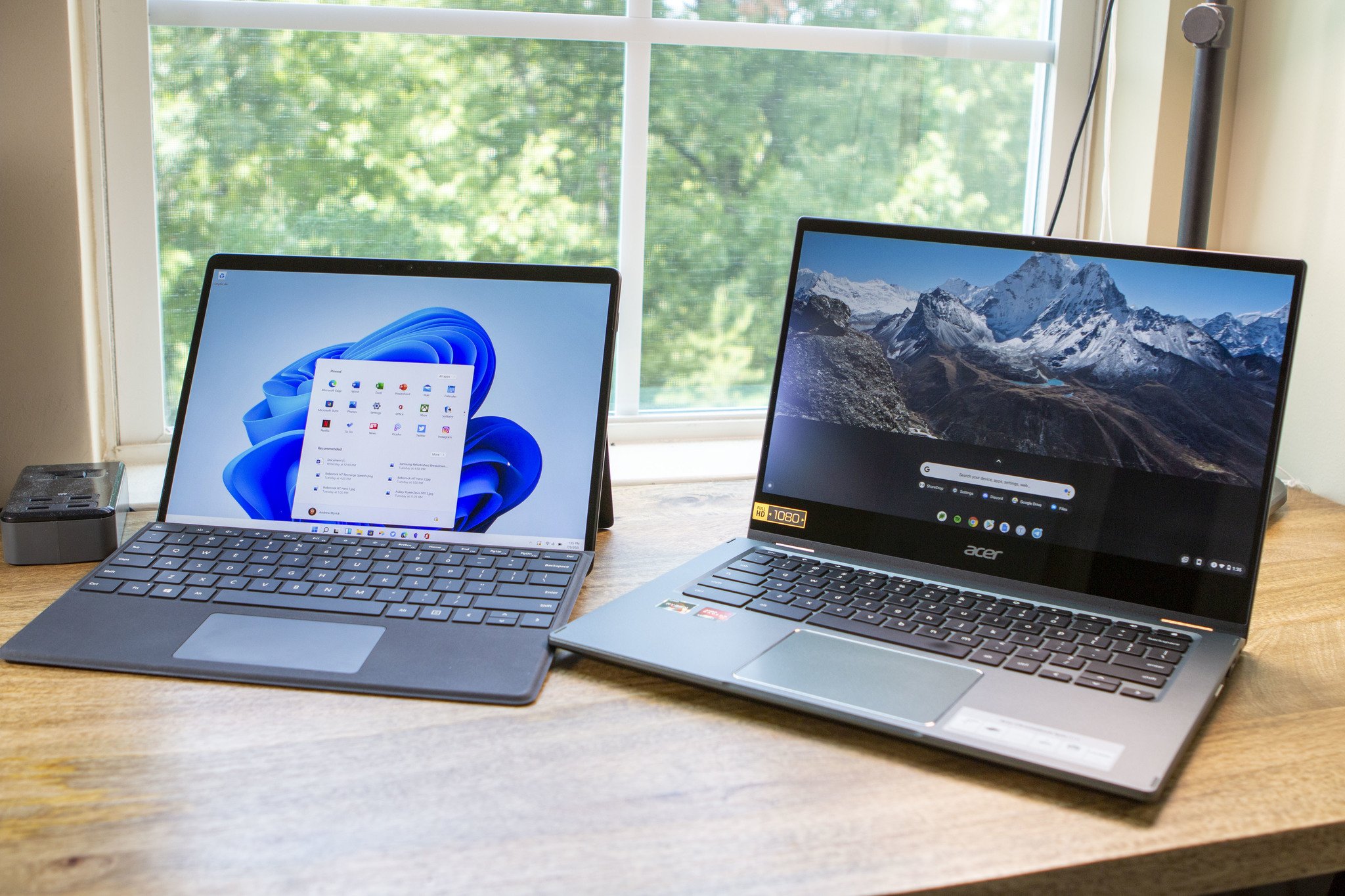
Windows 11 may just be the biggest update to Windows since the transition to Windows 8. But it's the similarities to how Chrome OS operates that have me intrigued the most. The reason for this is because, until earlier this year, Microsoft was working on a version of its operating system called Windows 10X.
Some pundits have claimed that Windows 11 should be called Windows 11 Big Sur, a hat-tip to Apple's current version of macOS. But in reality, Windows 11 feels like a melting pot of features from macOS, Chrome OS, along with some Windows 10 zest on top.
Windows 10X was designed for multi-display devices, like the in-limbo Surface Neo. Then, it was pivoted to be a more lightweight version of Windows designed to turn those $300 Windows laptops into something much more powerful to compete with Chromebooks. Now that Windows 10X has been on the back-burner, Microsoft has pivoted and included many of those features in the new version of Windows 11.
Windows 11 vs. Chrome OS: Android apps
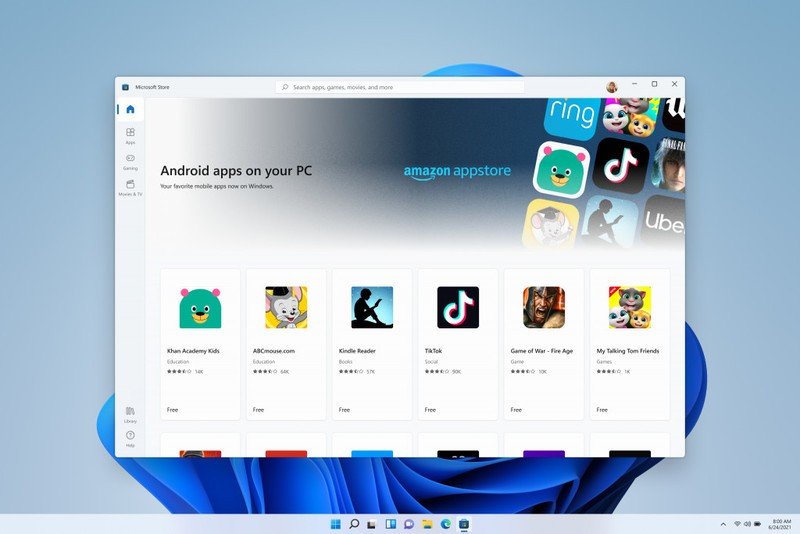
When Microsoft releases the final version, Windows 11 will be able to install Android apps. We've covered this a bit already, but this isn't Microsoft just bringing the Google Play Store to Windows. Instead, Microsoft is working with Amazon to bring Android apps to the billions of Windows users.
One of the problems that I have with this integration comes down to app availability. Yes, you'll be able to download some of the most popular Android apps (like TikTok or Ring), but you're not going to have access to all of the best Android apps. This is where Chromebooks and Chrome OS will continue to reign supreme.
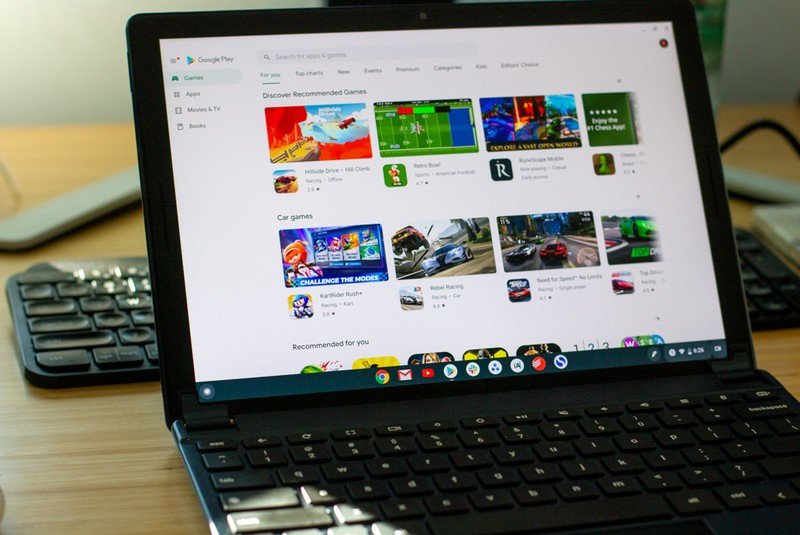
It's the Amazon App Store that really sticks out in my mind, as this is one of the biggest complaints when it comes to using the best Amazon Fire tablets. Amazon's App Store has a boatload of apps, but it simply pales in comparison to what you can get from the Play Store. So instead, you're left using the web version, but where Windows gets the advantage is that you can make use of Web Apps and PWAs that can be installed.
Maybe this partnership or whatever it is between Amazon and Microsoft will bring more developers to the platform. Maybe there will be some way for developers to create apps and upload them directly to Microsoft's redesigned App Store. But more than likely, we'll just end up side-loading the apps that we want. At least until that "loophole" is closed.
Get the latest news from Android Central, your trusted companion in the world of Android
Windows 11 vs. Chrome OS: Android integration
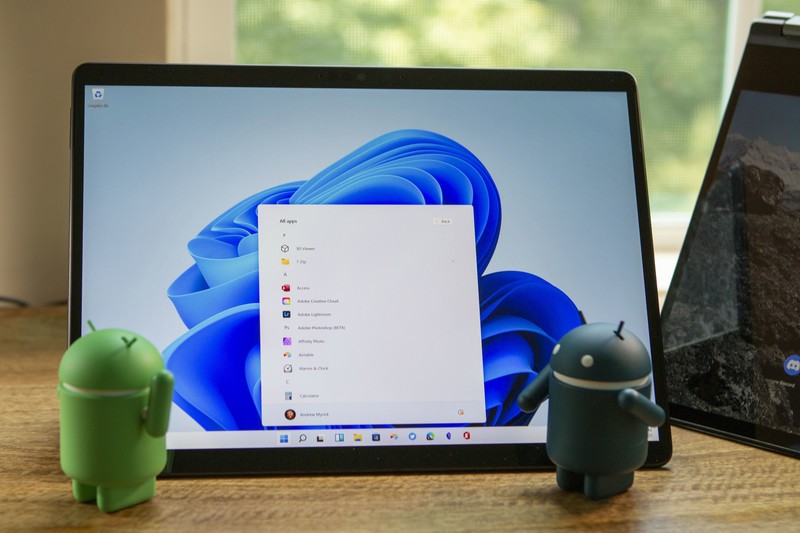
This one's not the same as having Android apps on Windows, but instead has to do with how your Android phone can interact. For the last few years, Microsoft has been using the Your Phone app to bridge Android and Windows. Meanwhile, Google has been bringing new features to Chromebooks and Chrome OS with the Phone Hub.
Phone Hub was introduced in Chrome OS 89, allowing you to view notifications and control various aspects of your phone from your Chromebook. These include things like Nearby Share for sending files to and from your phone, along with viewing notifications from your phone on your Chromebook.
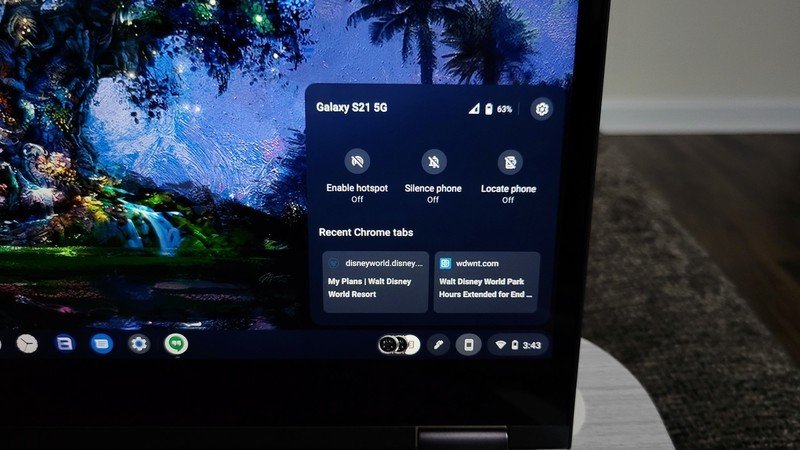
For now, though, Microsoft's Your Phone still has the upper hand, especially if you own one of the best Samsung phones. Samsung and Microsoft have been working hand-in-hand over the past few years, and this is just of the many fruits of that labor. Your Phone essentially lets you leave your smartphone on the desk while controlling everything.
While you can't install apps from your phone to the computer, you can pull up a screen mirror of your home screen. From there, you can interact with your phone just like it was in your hand. Instead of using finger swipes and gestures, you use a mouse and cursor. But you also have the ability to view and respond to notifications that come through, even text messages or phone calls.
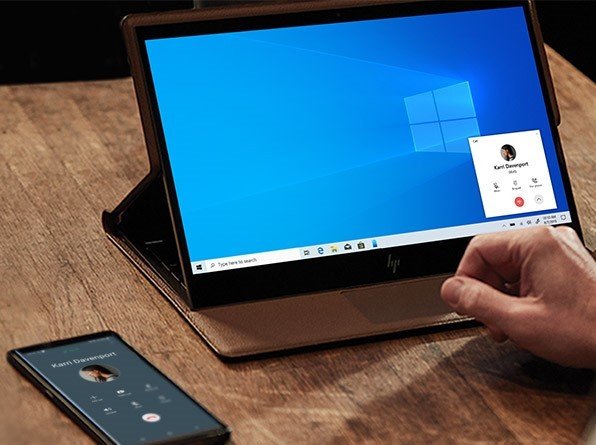
Chrome OS has a leg up in integrating Android features, but Your Phone puts your phone on your desktop. There is no need to use the Google Messages web interface to reply to texts and grab your phone when you need to make a phone call. If Google can bring similar features to Chrome OS, it would be absolutely amazing.
Windows 11 vs. Chrome OS: The interface
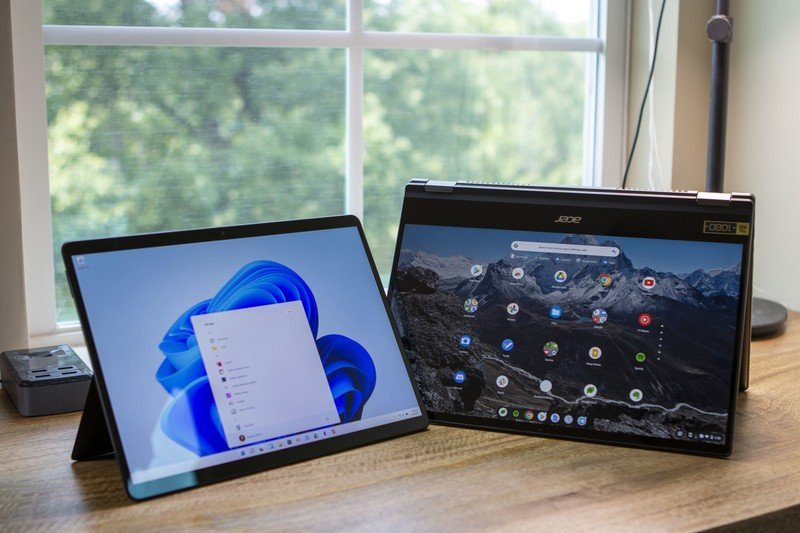
Windows 10X shines in the next version of Microsoft's OS with things like the Dock and the Widget Tray. The Dock, for one, looks just like what you'll find when you fire up one of the best Chromebooks for the first time. All apps are placed neatly in the center of your screen, but they can also be moved around as you see fit. Nothing really earth-shattering here.
The Widget Tray, though. That's where Windows 11 will stand out, provided that it ends up being useful for more than just "MSN News" and weather updates. If Microsoft makes it possible to use widgets from installed Android apps by some miracle, it's an instant game-changer. This isn't even something that's currently possible with Chrome OS and is one of the features that Google should consider "borrowing" from Microsoft. Alas, that's likely not something that is even on Google's mind with Chrome OS as it gears up for the Material You redesign introduced at Google I/O 2021.
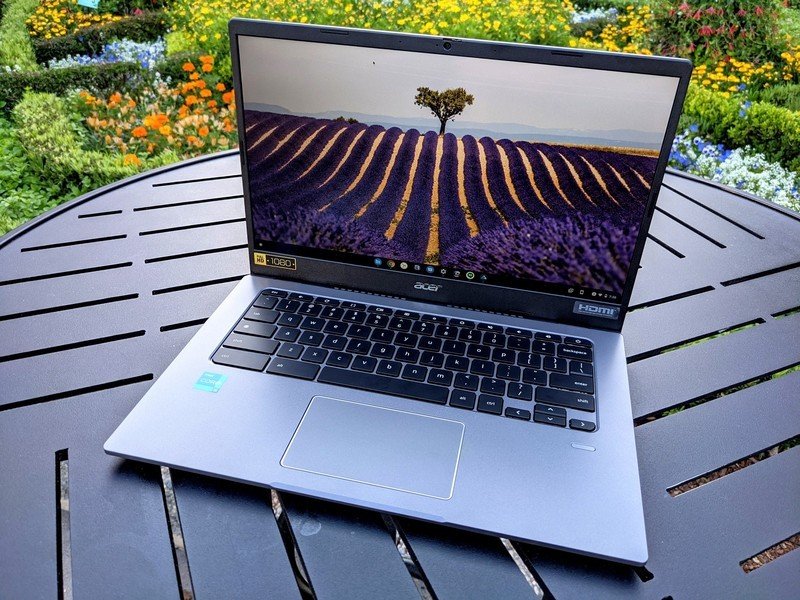
Another facet where Microsoft excels with Windows 11 comes down to window management. Before you had to rely on dragging windows to the edge and having them snap, or you had to try and remind annoying keyboard combinations. With Windows 11, a little pop-up box appears, giving you different configurations to set windows exactly how you want them on the desktop. As someone who works with too many windows open at the same time, it's this little "quality of life" improvement that has me excited.
Chrome OS could stand to implement something similar, other than leaving users to try and drag windows around all willy-nilly. Or dealing with trying to manually resize windows to fit an open area on your screen.
Windows 11 vs. Chrome OS: Tablet mode
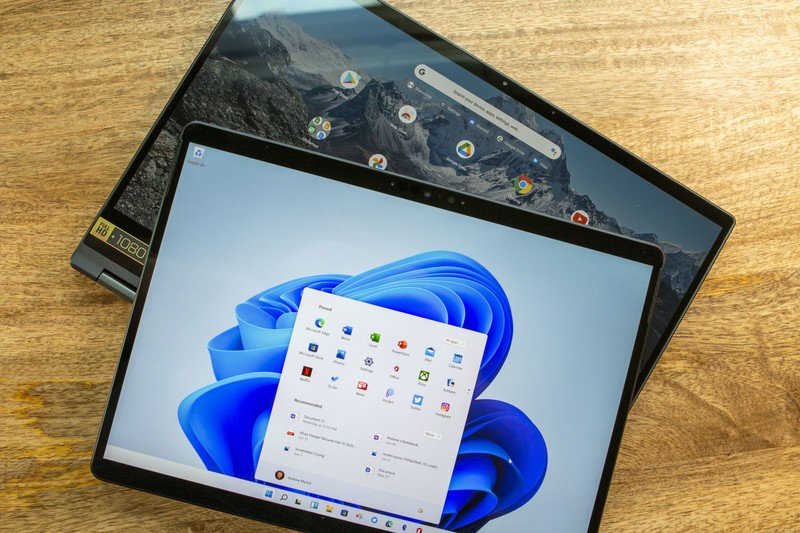
Personally, I have not used a Chrome OS tablet like the Lenovo Chromebook Duet. Instead, I have used Chromebooks with convertible displays, turning my laptop into an oversized tablet. And truth be told, it's not an overwhelmingly great experience.
Optimization for touchscreens is not a strong suit of Chrome OS, and it's probably why we haven't seen many Chrome OS-powered tablets. Google tried to kickstart the market with the Pixel Slate, but that was pretty much a flop. The Chromebook Duet has been available for more than a year, and we're just now getting another option in the ASUS Chromebook Detachable CM3.
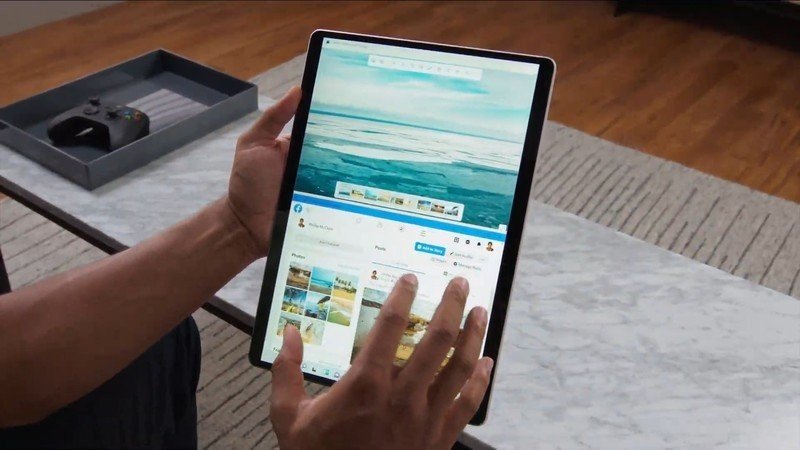
Windows 11, on the other hand, has the Surface Pro 7 and Surface Pro X, which are two of the most popular Windows tablets available. Not just because they can be transformed into a desktop replacement, but having the ability to remove the keyboard and use the Surface Pen or just as a tablet is a nice added benefit.
And it's here where we get into another area where Google could improve while Windows 11 has. Being able to download and install Android apps on Chromebooks is great, but interacting with these apps is a mixed bag. Dragging apps and windows around is a breeze, but trying to do anything precise without a stylus is just plain frustrating.
Windows 11, on the other hand, has vastly improved its tablet mode, with an improved on-screen keyboard, better gestures, and larger touch targets. As a result, you can snap windows like you would if using a mouse or even swipe down with three fingers to hide your apps. If Google were to focus on this just a tiny bit more, the comparison would be a bit more equal, but Microsoft has the advantage until then.
Windows 11 vs. Chrome OS: Speed
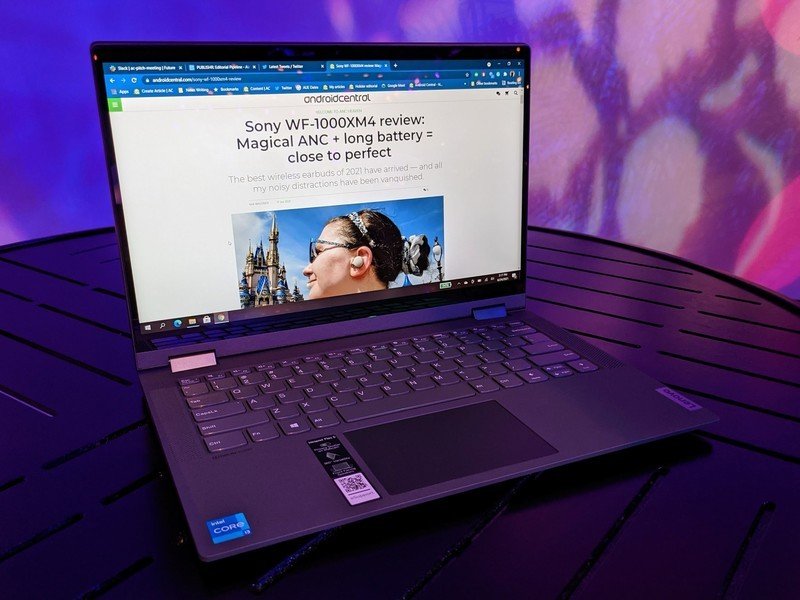
Whether you get the cheapest Chromebook that money can buy or the best Chromebook available today, your experience is largely the same. Sure, a Chromebook with less RAM may not handle intensive tasks, but it can still handle almost anything else you throw at it.
The same cannot be said for Windows 10, which is part of the reason why Windows 10X was supposed to "change the game." Windows 10X is a lighter and faster version of Windows, and although we are only using the first developer preview, Windows 11 is already paying dividends.

Using Windows 11 on a Surface Pro X and a custom-build desktop PC is like night and day compared to running Windows 10. However, the Surface Pro X has surprised me the most, given that it's powered by the Microsoft SQ2 chipset. The SQ2 is an ARM-based chipset based on the Qualcomm Snapdragon 8cx Gen 2. Before Windows 10, the Surface Pro X would suffer from a few lags here or there, and even on the fast insider ring, app-emulation was a drag.
Windows 11 has completely changed that, as I feel like I'm using something like a more portable version of the Dell XPS 13. It's finally up-to-par with what I'm used to when using a Chromebook, while still providing access to all of the "normal" apps that I have downloaded on my desktop.
Unless something changes between now and the final release of Windows 11, it will be interesting to see how the landscape of the best cheap laptops transforms. Maybe those sub-$400 Windows 11 laptops will actually give Chromebooks a run for their money. I'm hoping they can, not because I want Chromebooks to go away, but competition is a good thing, and Windows is really the only potential competition.
Windows 11 vs. Chrome OS: It's not over yet
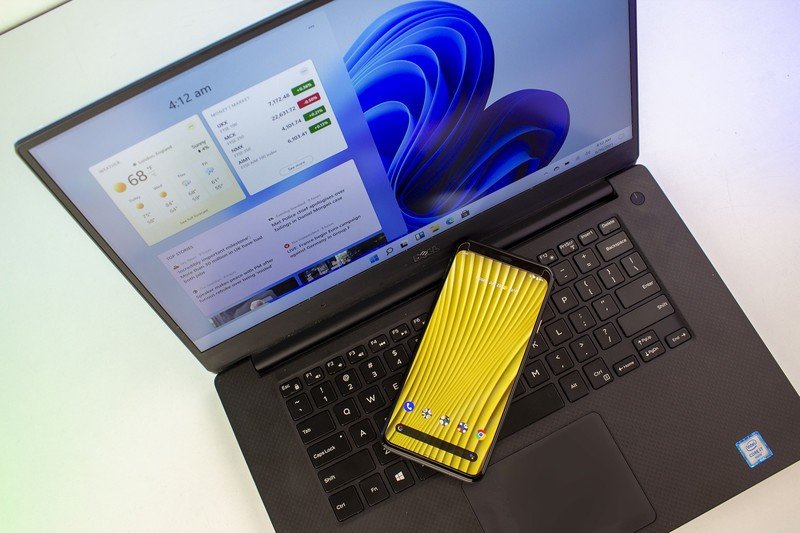
As I'm writing this, it's July. Windows 11 isn't supposed to be officially released until sometime in October. Many things can change between now and then, including Chrome OS' redesign with Material You. We can't imagine that Google would only provide a visual overhaul to one of the most popular platforms in the world. Hopefully, Google can take some of this time to implement new features that would help Chrome OS stand out more from what Windows 11 offers.
While unlikely, there's also always the chance something could go awry in the Android app integration into Windows 11. So while we're keeping our fingers crossed that doesn't happen, anything is possible. I mean, who would've thought that Android apps would actually be coming to Windows in the first place?
The real test will be when Windows 11 starts shipping with those budget-friendly Windows laptops. Then, we'll see if Windows 11 has improved things enough to really challenge Chrome OS or if this is all just a formality.

Andrew Myrick is a Senior Editor at Android Central. He enjoys everything to do with technology, including tablets, smartphones, and everything in between. Perhaps his favorite past-time is collecting different headphones, even if they all end up in the same drawer.
